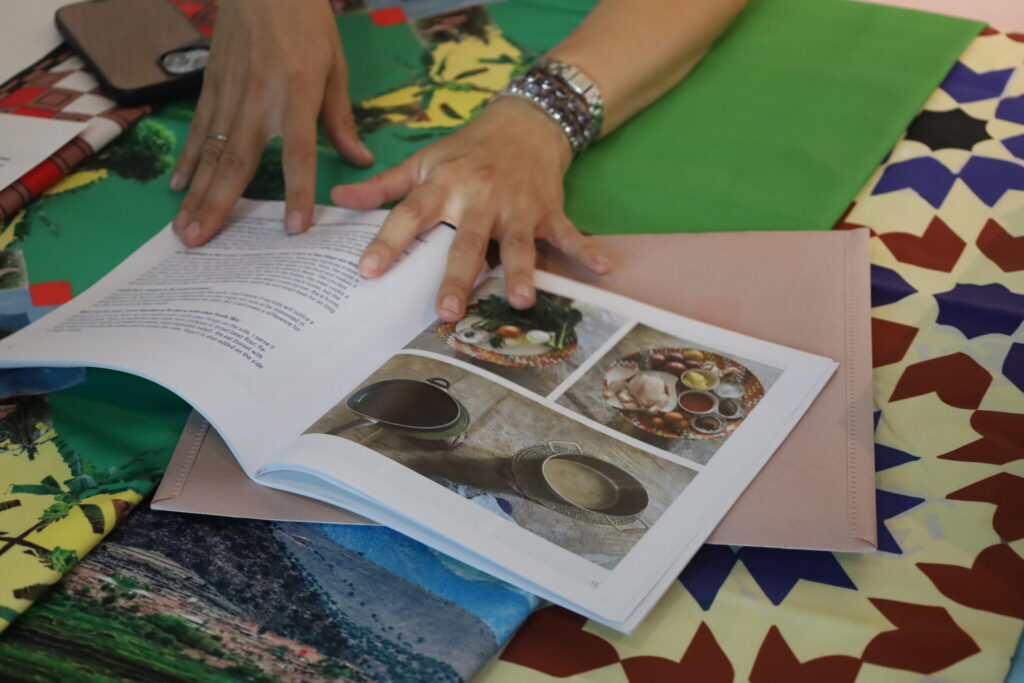
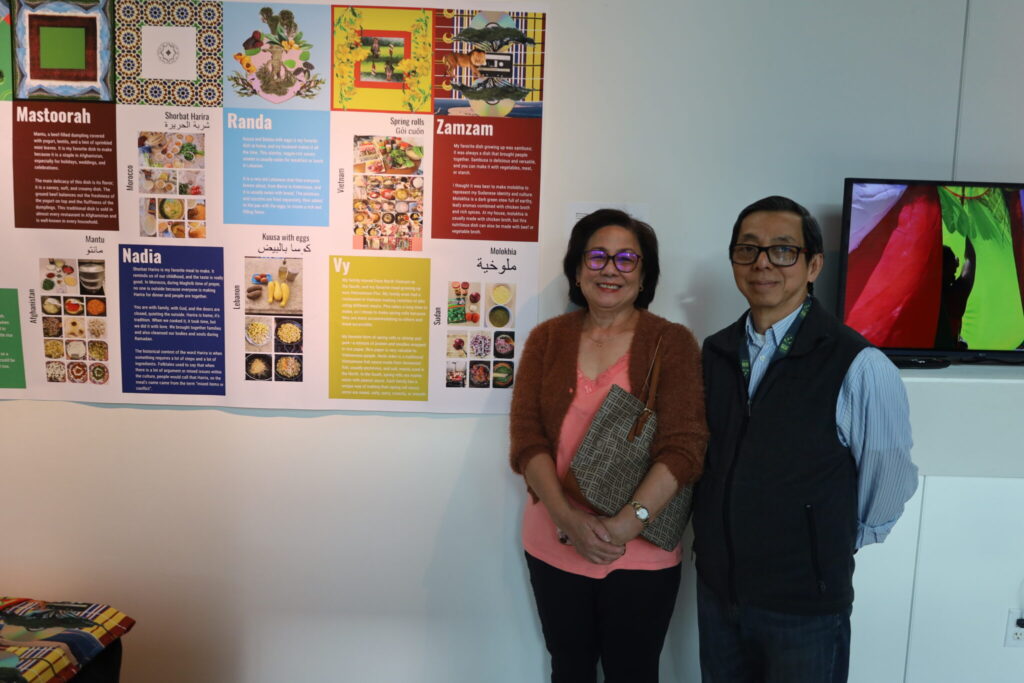
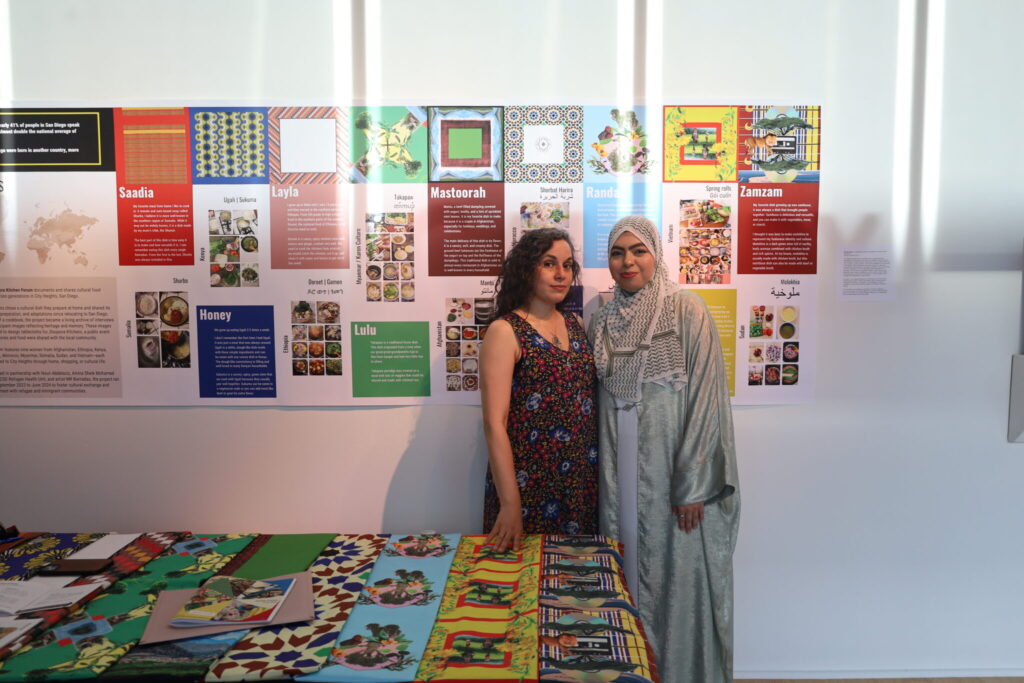
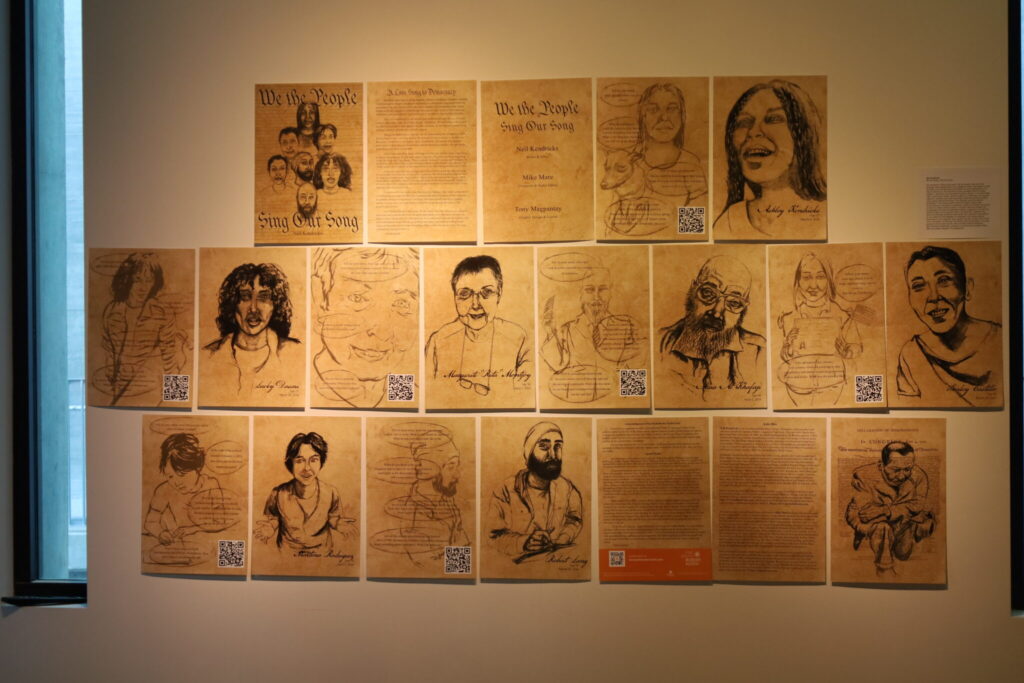
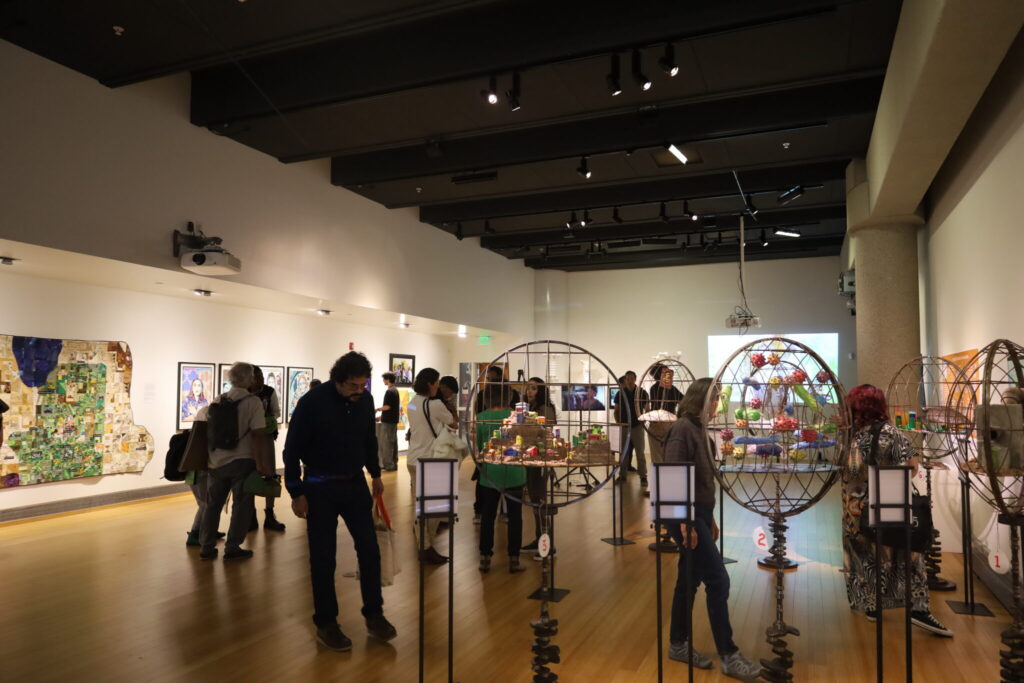
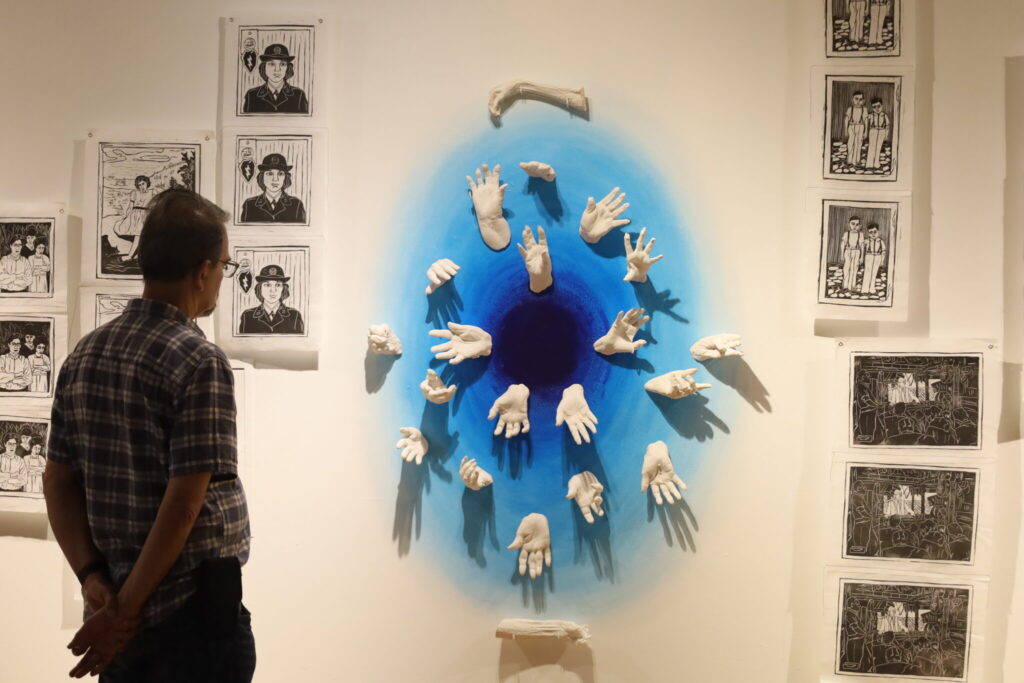
In San Diego’s vibrant immigrant and refugee communities, food is more than sustenance—it’s memory, identity, and connection. That belief was the inspiration behind our Refugee and Immigrant Health Unit‘s Diaspora Kitchen Forum, an intergenerational event that brought together nine incredible families from diverse cultural backgrounds, all of whom now call San Diego home.
This campaign was made possible through a powerful collaboration between Noun Abdelaziz, a community organizer and health researcher with the United Women of East Africa Support Team (UWEAST), in the San Diego Refugee Communities Coalition (SDRCC), Amina Sheik Mohamed (our Center’s Founding Director of the Refugee and Immigrant Health Unit), and MR Barnadas, San Diego-based artist and representative from Balboa Park’s Museum of Us. Together, we set out to create a space where stories could be shared and heritage honored through food.
At the heart of the forum was a beautiful exchange: families shared their most cherished recipes, food traditions, and reflections on how their cooking practices have shifted since resettling in San Diego. These weren’t just meals—they were stories of migration, adaptation, resilience, and cultural pride. Through their voices, we were able to paint a richer, more nuanced portrait of San Diego’s cultural fabric.
To honor each family’s story, MR Barnadas designed a series of custom tablecloths for the event. Each one was inspired by the identity of the family it represented—featuring traditional textile patterns or original visual montages that celebrated their culinary and cultural journeys. These tablecloths weren’t just decorative—they became heirlooms, capturing and preserving something deeply personal and powerful.
The forum was held in City Heights, a neighborhood at the heart of many immigrant experiences. While the event was celebratory, it also served as a platform for deeper reflection. We used this gathering to shed light on food justice issues affecting our communities—highlighting food deserts in culturally specific neighborhoods and challenging what “access” means when food systems don’t consider culture or identity.
In the end, Diaspora Kitchen Forum became more than an event—it became a movement. A movement to center community voice, uplift cultural wisdom, and ask hard questions about equity and belonging. It reminded us that food is a language we all speak—and when shared with intention, it can be a powerful tool for healing, advocacy, and connection.
To learn more about the work we do with immigrant and refugee communities, visit our Refugee and Immigrant Health Unit page.
